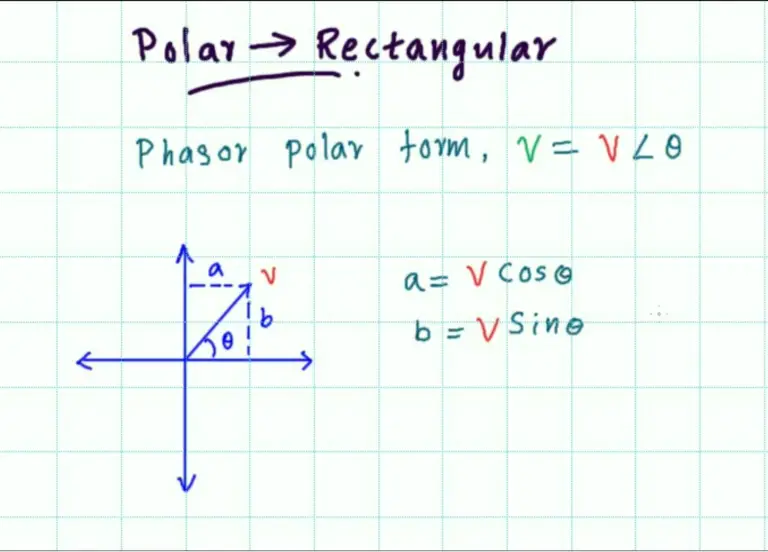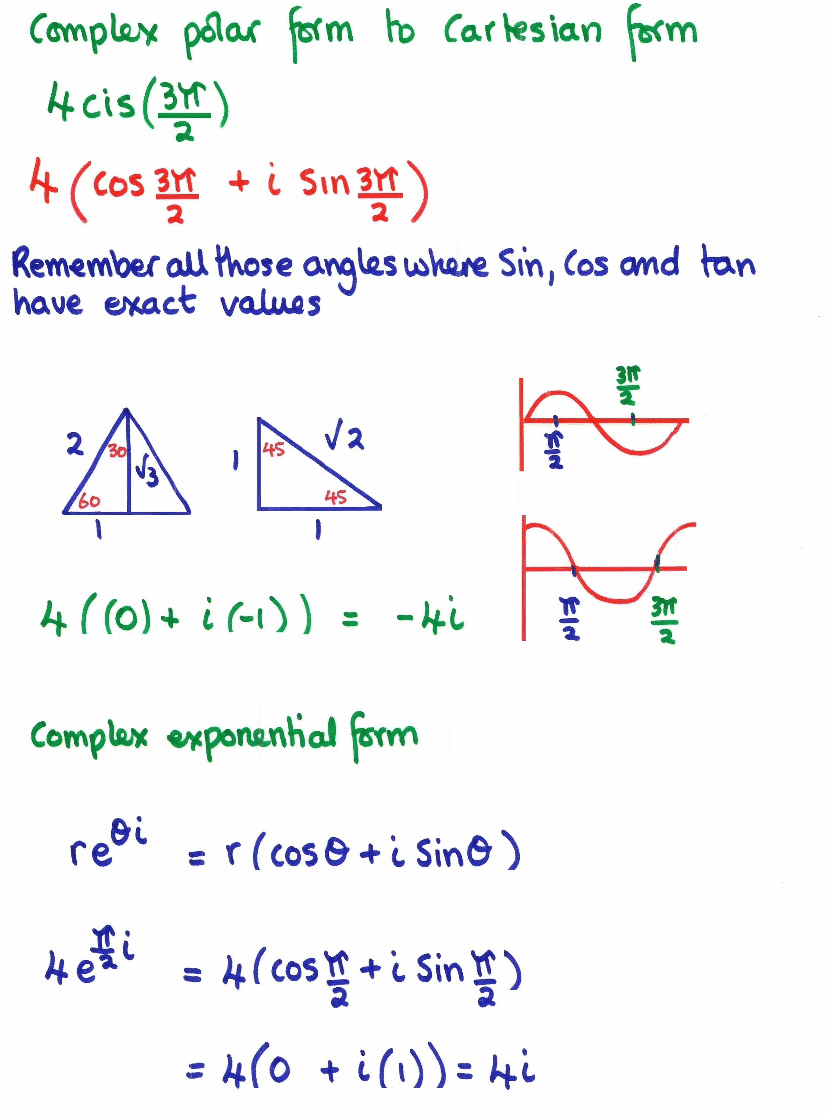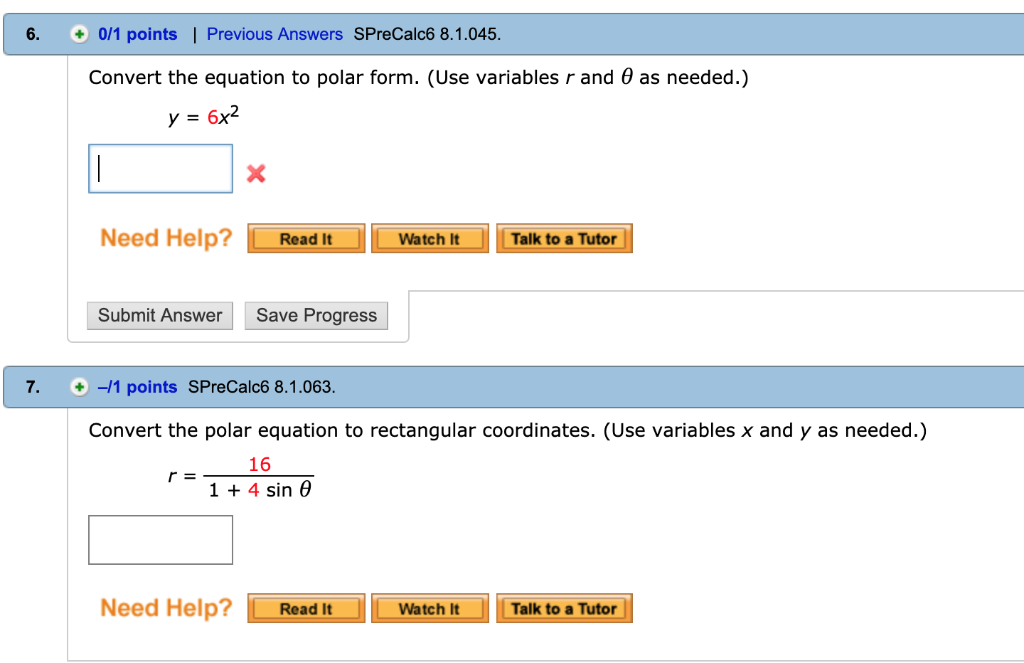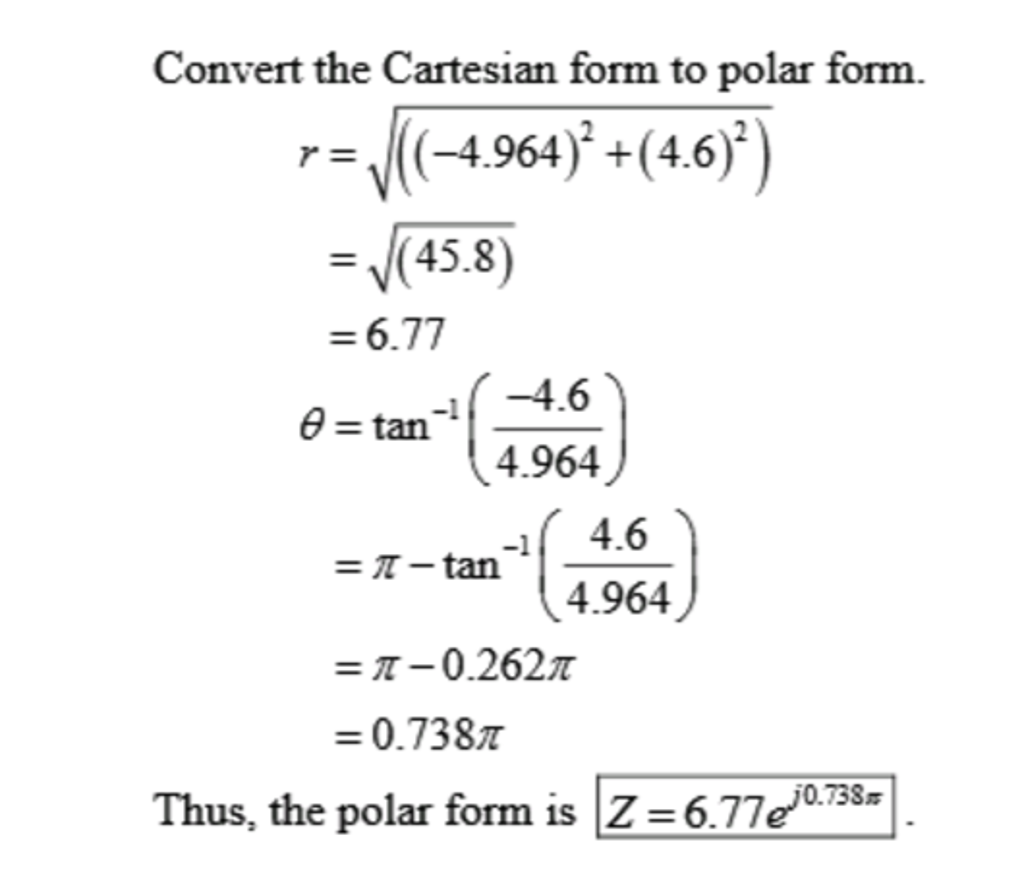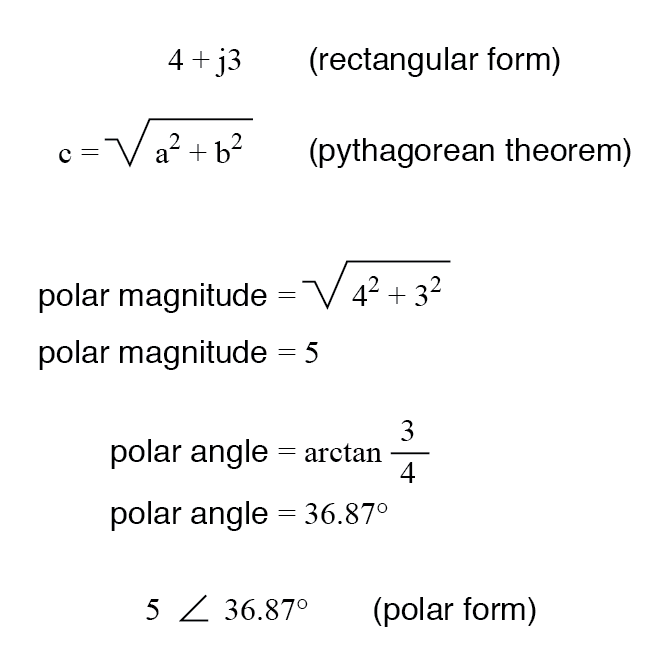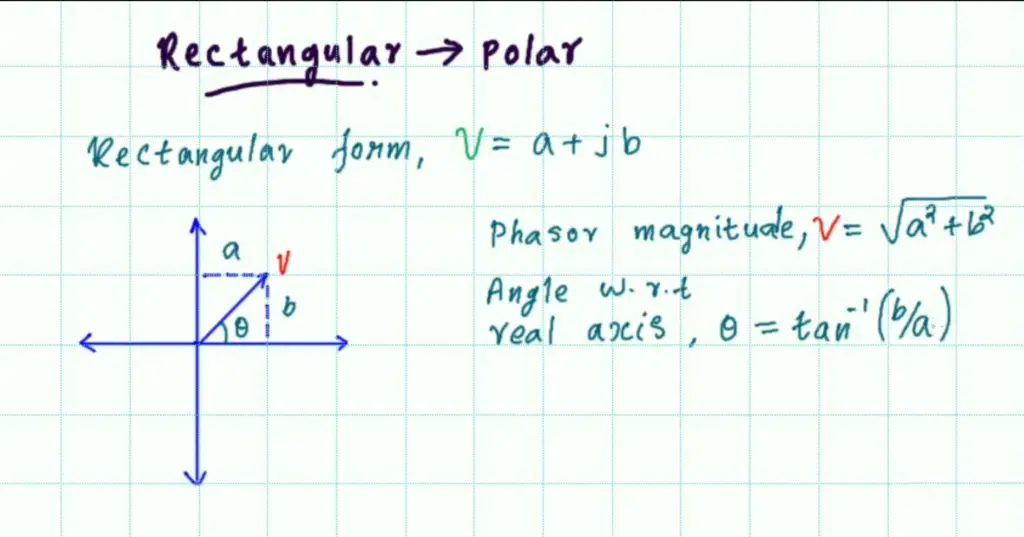How To Convert Impedance To Polar Form
How To Convert Impedance To Polar Form - (c) r = (1, −2.2) = 2.416 ∠ −1.144; When expressed as a fraction, this ratio between true power and apparent power is called the. Web in this video i will explain the representation of impedance and it's polar conversion. (d) r = (−2,5.6) = 5.946 ∠ 1.914. Web remember that an inductive reactance translates into a positive imaginary impedance (or an impedance at +90°), while a capacitive reactance translates into a negative. Its symbol is usually z, and it may be represented by. Convert to polar/phasor (if not already in polar/phasor form), take reciprocal of magnitude, negate phase angle, convert back to rectangular. (a) r = (2,3) = 3.606 ∠0.983; Polar notation denotes a complex number in terms of its vector’s length and angular direction from the starting point. In general, the impedance of a circuit is partly resistive and partly reactive:
The real part is the resistance, and the imaginary part is the. (c) r = (1, −2.2) = 2.416 ∠ −1.144; Its symbol is usually z, and it may be represented by. Web (which are complex numbers in polar form), then the impedance is defined as this lends itself to an interpretation of ohm’s law for ac circuits: In polar form these real and imaginary axes are simply represented by “a ∠θ“. Let z = a + bi be a complex number. (a) r = (2, 3). Web remember that an inductive reactance translates into a positive imaginary impedance (or an impedance at +90°), while a capacitive reactance translates into a negative. When expressed as a fraction, this ratio between true power and apparent power is called the. Web in this video i will explain the representation of impedance and it's polar conversion.
In general, the impedance of a circuit is partly resistive and partly reactive: Convert to polar/phasor (if not already in polar/phasor form), take reciprocal of magnitude, negate phase angle, convert back to rectangular. Web (which are complex numbers in polar form), then the impedance is defined as this lends itself to an interpretation of ohm’s law for ac circuits: Web remember that an inductive reactance translates into a positive imaginary impedance (or an impedance at +90°), while a capacitive reactance translates into a negative. In ac circuits, the impedance plays. Fly 45 miles ∠ 203 o (west. (d) r = (−2,5.6) = 5.946 ∠ 1.914. Web table of contents a calculator to convert impedance from complex to polar form is presented. A complex impedance of the from z = a + j b has a modulus given by | z | = a. In polar form these real and imaginary axes are simply represented by “a ∠θ“.
Polar Form of Complex Number Meaning, Formula, Examples
Let z = a + bi be a complex number. In ac circuits, the impedance plays. Web in standard complex form as \( z_r = r + j \; Web it also happens to be the same angle as that of the circuit’s impedance in polar form. Web impedance can be represented as a complex number, with the same units.
Rectangular to Polar form & Polar to Rectangular form conversion
Web it also happens to be the same angle as that of the circuit’s impedance in polar form. (b) r = (−1, −4) = 4.123 ∠−1.816; The real part is the resistance, and the imaginary part is the. (c) r = (1, −2.2) = 2.416 ∠ −1.144; Web remember that an inductive reactance translates into a positive imaginary impedance (or.
Rectangular Form Into Polar Form Hacerclikconlastic
Let z = a + bi be a complex number. In general, the impedance of a circuit is partly resistive and partly reactive: Then the polar form of z is written as z = reiθ where r = √a2 + b2 and. 0 \) and in polar form as \( z_r = r \; Web remember that an inductive reactance.
Converting from Rectangular to Polar form YouTube
Fly 45 miles ∠ 203 o (west. Then the polar form of z is written as z = reiθ where r = √a2 + b2 and. 0 \) formulas to add, subtract, multiply and divide polar impedances adding polar. Let z = a + bi be a complex number. 0 \) and in polar form as \( z_r = r.
Solved 6. 0/1 points Previous Answers SPreCalc6 8.1.045
Z = r + jx. (a) r = (2,3) = 3.606 ∠0.983; Let z = a + bi be a complex number. (c) r = (1, −2.2) = 2.416 ∠ −1.144; 0 \) formulas to add, subtract, multiply and divide polar impedances adding polar.
Solved Convert The Cartesian Form To Polar Form R Squa Free Nude Porn
Web table of contents a calculator to convert impedance from complex to polar form is presented. Web it also happens to be the same angle as that of the circuit’s impedance in polar form. The real part is the resistance, and the imaginary part is the. Polar form of a complex number. (a) r = (2, 3).
2.5 Polar Form and Rectangular Form Notation for Complex Numbers
Fly 45 miles ∠ 203 o (west. In ac circuits, the impedance plays. Web converting vectors to polar form: When expressed as a fraction, this ratio between true power and apparent power is called the. Z = r + jx.
Rectangular to Polar form & Polar to Rectangular form conversion
In polar form these real and imaginary axes are simply represented by “a ∠θ“. Web the polar form is where a complex number is denoted by the length (otherwise known as the magnitude, absolute value, or modulus) and the angle of its vector (usually denoted. Web it also happens to be the same angle as that of the circuit’s impedance in.
Polar Form of Complex Number Meaning, Formula, Examples
In general, the impedance of a circuit is partly resistive and partly reactive: (a) r = (2, 3). 0 \) formulas to add, subtract, multiply and divide polar impedances adding polar. (a) r = (2,3) = 3.606 ∠0.983; Then the polar form of z is written as z = reiθ where r = √a2 + b2 and.
Converting to Polar Form (updated) YouTube
Web table of contents a calculator to convert impedance from complex to polar form is presented. The real part is the resistance, and the imaginary part is the. Convert to polar/phasor (if not already in polar/phasor form), take reciprocal of magnitude, negate phase angle, convert back to rectangular. Web impedance can be represented as a complex number, with the same.
Web Impedance Can Be Represented As A Complex Number, With The Same Units As Resistance, For Which The Si Unit Is The Ohm (Ω).
Web (which are complex numbers in polar form), then the impedance is defined as this lends itself to an interpretation of ohm’s law for ac circuits: In polar form these real and imaginary axes are simply represented by “a ∠θ“. Convert to polar/phasor (if not already in polar/phasor form), take reciprocal of magnitude, negate phase angle, convert back to rectangular. (b) r = (−1, −4) = 4.123 ∠−1.816;
(A) R = (2, 3).
Web table of contents a calculator to convert impedance from complex to polar form is presented. Z = r + jx. Web converting vectors to polar form: Web in standard complex form as \( z_r = r + j \;
Polar Form Of A Complex Number.
Web remember that an inductive reactance translates into a positive imaginary impedance (or an impedance at +90°), while a capacitive reactance translates into a negative. (d) r = (−2,5.6) = 5.946 ∠ 1.914. When expressed as a fraction, this ratio between true power and apparent power is called the. In general, the impedance of a circuit is partly resistive and partly reactive:
(C) R = (1, −2.2) = 2.416 ∠ −1.144;
0 \) and in polar form as \( z_r = r \; The real part is the resistance, and the imaginary part is the. (a) r = (2,3) = 3.606 ∠0.983; Web in this video i will explain the representation of impedance and it's polar conversion.

